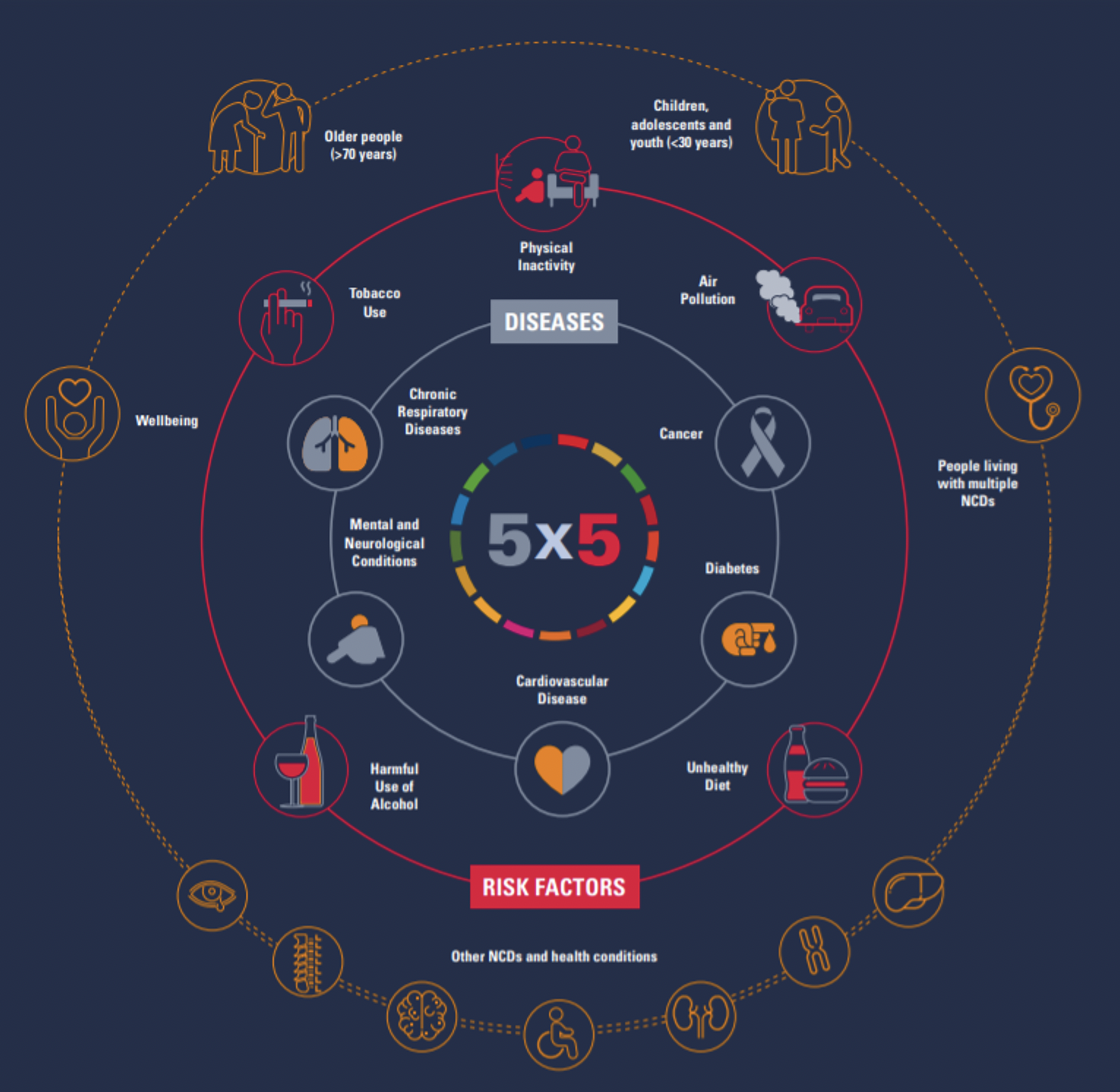Strengthening the agenda: Informing inclusive action on NCDs through lived experience
30th November 2020

30th November 2020
It is estimated that 1.7 billion people (more than one-fifth of the world population) currently live with life-threatening NCDs, also being more at risk of severe complications from other conditions including infections, as we have seen with COVID-19. Furthermore, the prevalence of people living with multiple conditions has grown significantly over the past 20 years, while there is evidence that currently, total healthcare costs for treating multiple NCDs are greater than the sum of the costs for individual diseases, entailing a greater economic burden for households.
As the demand for NCD services grows, the response to this global epidemic needs to be informed by an inclusive agenda that puts people at the centre, tackles a wide range of NCDs and reduces all aspects of people’s suffering – from physical and mental pain to social and financial hardship. With this in mind, the NCD Alliance recently published a discussion paper – The Need for a Person-Centred, Inclusive NCD Agenda – to explore and identify, together with the NCD community, a way to drive an inclusive NCD agenda forward.
Many NCDs are preventable, and many others can be delayed or managed through interventions that can facilitate early diagnosis, life-long quality care and comprehensive support, avoiding the development of complications and additional conditions. For that, health systems need to break down existing disease siloes by promoting access to integrated care across communities. This can be done through the promotion of multidisciplinary care teams and other interventions; but most importantly, and as identified by the discussion paper, we need to understand the full journey that people living with a wide range of NCDs experience across their life course, by meaningfully involving them in shaping a credible, effective and inclusive NCD agenda for both global and national action.
People living with NCDs, including care partners, bring first-hand knowledge and expertise on how to navigate the health system and overcome daily challenges in a unique and essential way. A recent Our Views, Our Voices[i] publication Towards an inclusive NCD agenda: A collection of lived experiences from around the world, led by the NCD Alliance thanks to a partnership with Takeda, complements the discussion paper. It aims to illustrate the lived experiences of people living with a wide range of NCDs, including rarer and multiple conditions, and extract commonalities in challenges and needs to inform efforts to frame an inclusive NCD agenda that drives effective policy development and health system reform by governments.
The testimonials and key messages in the Our Views, Our Voices publication were a clear reminder that the journey of those living with one or more NCD is rarely straightforward, especially when there is no capacity to deliver an accurate diagnosis for a wide range of NCDs at the primary healthcare level. This often means years of uncertainty and extraordinary health expenditure that can also cause permanent damage to physical health, as well as to emotional wellbeing. Moreover, it was shown that people living with NCDs often experience social rejection, stigma and discrimination, which also affects their journey through the health system. For instance, they may need additional psychological support, feel ashamed of seeking care, or be unable to maintain a job that will pay their bills. In addition, other structural challenges to access were identified, such as the lack of national insurance schemes, the need for adequate public transport to reach health centres, or the mere absence of public information and education about NCDs, which leaves people unaware of why, when and how they should seek screening and care.
It’s important that we understand and address the realities of people living with a wide range of NCD conditions, including rarer and multiple conditions, by meaningfully involving those affected. Otherwise, the response will not meet the actual needs of people living with NCDs, and NCDs will continue to cut people’s lives short, disabling them, fuelling stigma and discrimination, and trapping communities into cycles of poverty and health inequality. An inclusive NCD agenda is key for governments to guarantee the right to health and dignity of their populations and meet their commitment to “leaving no one behind”, underpinned by the concept of Universal Health Coverage (UHC) and the 2030 Agenda for Sustainable Development. This is an important area for action as we find effective ways forward to build back better from the COVID-19 pandemic.

Source: The Need for a Person-Centred, Inclusive NCD Agenda discussion paper.
Dr Susanne Weissbaecker is the Global Head of Access to Medicines in Takeda. Before that, she engaged cross-sectorial partners from civil society and public and private sector to move the health agenda towards NCDs and value-based healthcare, leading the Healthcare Community at the World Economic Forum.
Dr Cristina Parsons Perez is the Capacity Development Director of the NCD Alliance, where she is responsible for efforts to meaningfully involve people living with NCDs and support national and regional civil society to drive the NCD response.
The discussion paper The Need for a Person-Centred, Inclusive NCD Agenda, complemented by the first-hand experiences shared in Towards an inclusive NCD agenda: A collection of lived experiences from around the world, is a starting point from which the NCD Alliance will explore how to support advocacy calling for a Person-Centred, Inclusive NCD Agenda. You are invited to please share your comments and suggestions with [email protected].
[i] Our Views, Our Voices is an initiative of the NCD Alliance and people living with NCDs dedicated to promoting the meaningful involvement of people living with NCDs in the NCD response, and to supporting and enabling individuals to share their lived experiences, build a public narrative on NCDs, and drive change. It seeks to advance the rights of people living with NCDs and combat stigma and discrimination. The global Advocacy Agenda of People Living with NCDs, which was built in 2017 with input from nearly 2,000 people living with and affected by NCDs from all over the world, serves as a touchstone for the initiative. The Advocacy Agenda draws on the power of the lived experience and identifies shared priorities and recommendations of people living with NCDs in four key areas: human rights and social justice; treatment, care and support; prevention; and meaningful involvement.